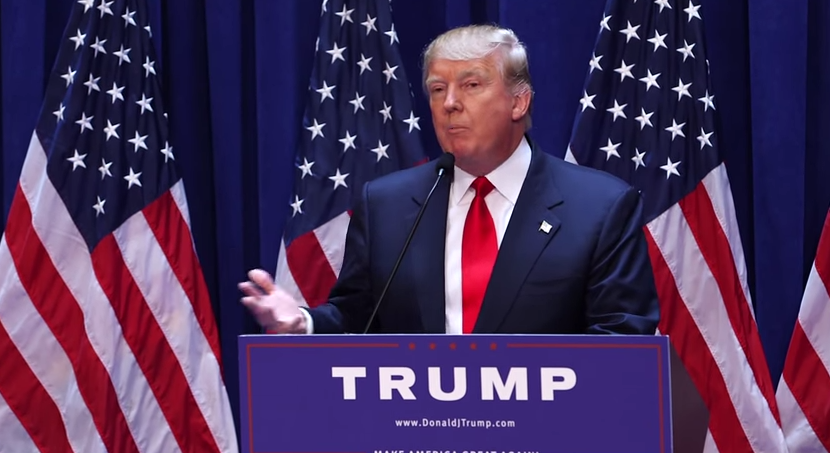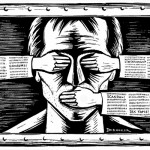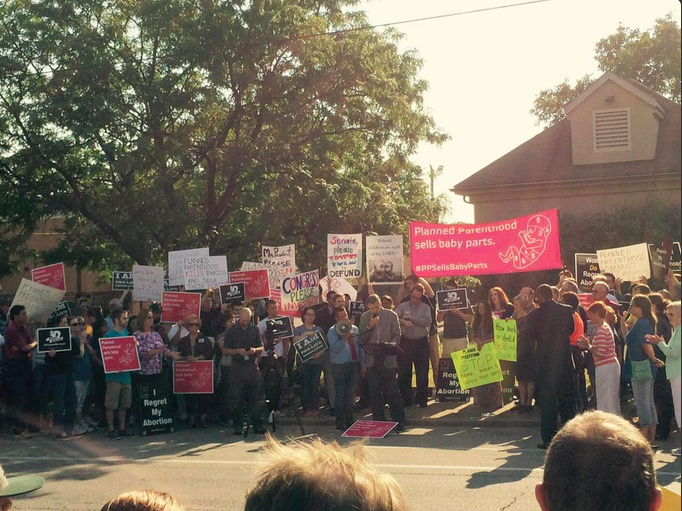The Supreme Court voted 5-4 on Monday to reverse a lower court’s ruling that banned the opening prayer invocation practiced by the members of Greece, New York’s Town Hall. The majority, led by Anthony Kennedy, found that the prayers were consistent with the history and overall culture of the town meetings. Further, Kennedy wrote that “discomfort did not equal coercion” and that the Establishment Clause did not suffer violation even if some members present objected to the Christian language of the prayer.
Kennedy’s majority opinion stresses three points:
1) There is legal precedent before the Court that establishes the legitimacy and Constitutionality of prayers in governmental meetings (Marsh v Chambers)
2) The theological content of the prayers is not actually of interest to judges, and cannot be, since it would require value judgments on what constitutes a “non-sectarian” prayer.
3) There is no evidence that the invocation or the participants in the meeting coerced or otherwise harassed non-Christian members of the gallery; thus the meeting’s prayers are “free exercise.”
Kennedy’s reasoning is sound, has precedent and lends itself to the most straightforward and historically honest reading of the First Amendment that is possible. The plaintiffs who brought the case against the city objected that the presence of theological language in the prayer violated their (in the words of Justice Kagan, who wrote the dissent) “identity” and amounted to a governmental preference for Christianity and Christians.
The lefitst response to the decision was predictable and recycled. Think Progress declared that the Court had “blown a hole in the wall of separation of church and state.” Garrett Epps of The Atlantic blew the theocracy siren, warning that “[t]he new growth on the government-sponsored-religion side is distinctly invasive—the habitat of the majority moves relentlessly forward, while the sphere of solitary conscience retreats.” The editors of the Times declared that the decision was “a defeat for religious neutrality.”
These responses showcase once again how the secular-progressive understanding of the Establishment Clause is historically ignorant, logically absurd and politically retrograde. The Kagan Dissent makes the argument the argument that the invocation of theology (such as the name of Jesus) creates unnecessary division within the political process. Interestingly, Kagan supports the Marsh decision, citing (as do the responses of the media) the “non-sectarian” content of the Nebraska prayers and their invocation in a legislator-only context, rather than among voters there to present business to the city.
Upon reflection, Kagan’s argument is simple: Town hall invocations are fine as long as they don’t say anything and are addressed only to those required to be present. This is not only inconsistent with the spirit of Marsh, it turns the history of New York and the First Amendment on its head. Milton Klein writes in his chapter on New York in The Bill of Rights and the States:
As a result of their colonial experience, New Yorkers developed both a practical and theoretical foundation for their belief in religious freedom and their opposition to an established church. Liberty of conscience was of all natural rights the most unalienable: “It claims an entire Exemption from all human Jurisdiction; because its End, Offices, and Interests, are superior to all the Ends of Civil Association.” The “natural right of every man to choose his own religion, and to worship his Maker in the manner he thinks most acceptable to him” was the most indubitable of constitutional rights. It followed, therefore, that civil power had no jurisdiction over the religious opinions of the citizens “till such Opinions break out into Actions prejudicial to the Community,’ and then it was the action, not the opinion, that was punishable…
Far from weakening religion, it was asserted, diversity and tolerance strengthened it. Religious liberals like William Livingston were certain that people’s genuine religious convictions were enhanced in inverse proportion to the degree of coercion applied in promoting them. (p. 225)
The religious freedom imagined by the Framers and sought after by the Constitution-era New Yorkers was not the ability of the state to create religious and philosophical vacuums in the public sphere. It was the enhancement of religion and civil liberty by the prohibition of coercive, punitive or preferential religious legislation. The ‘natural right of every man” to worship freely extends logically to groups. Why is a town hall meeting excluded from this right? If the law finds, as Justice Kennedy said it did, that Greece was not coercing, denigrating or otherwise remonstrating non-Christians, where is the supposed Constitutional violence?
The answer, provided by Justice Kagan on behalf of the Left, is that the mere presence of theology creates a public atmosphere that is toxic to individual identity. But that idea mistakes the subject of the First Amendment for its predicate. The Establishment Clause relates laws to religion in a way that limit the former, not the latter. Religiously free societies are societies not free from religion but free from religious governance. The invocations at the Greece town meetings provide no governance, no coercion, and certainly no violation of individual conscience.
Finally, Justice Kagan and her colleagues admonish that public invocations be “non-sectarian.” But unlike “non-coercive”, such language does not actually have a real referent. Invocations can be “non-coercive” if they do not punish dissent or mandate belief. IN other words, the invocation can be a public expression of community religious tradition without doing violence to rights or convictions. The alternative, as Justice Kennedy points out, is to hold every single public invocation to a “non sectarian” test. The problem is obvious: Who writes the test? The religious believer? The non-believer? How many of each?
The Court arrived a sensible decision that places value on community traditions and respects the history of public meetings. It is up to the dissenters to explain why the presence of religion violates rights; a tall task, considering the amount of Constitutional history that would need to be rewritten.











